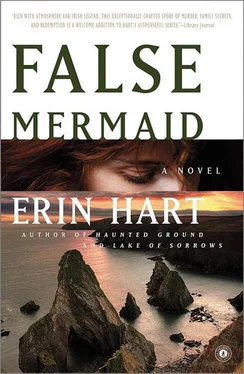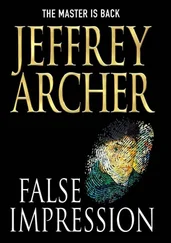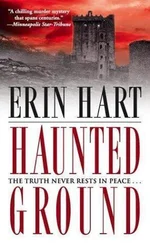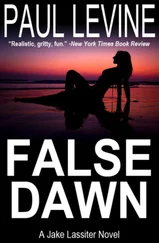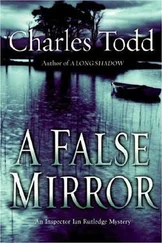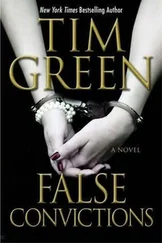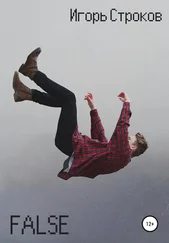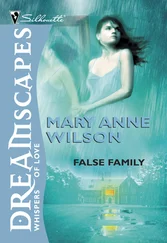A sudden noise sounded down the hall, and her father’s voice came booming up the stairs. “Elizabeth—are you home?”
Elizabeth heard her own heart pumping noisily in her ears. She abruptly switched off the computer, and in her haste knocked over a pencil cup, feeling clumsy as she tried to gather up rolling pens and pencils. Her father liked everything a certain way—were the points supposed to go up or down? No time to think. She shoved the whole handful into the cup, points upward, hoping her memory was right. He couldn’t know she had been here.
She tiptoed to the office door and peered out into the hallway. Hearing water running in the kitchen, she knew it was her chance to scurry down the hall. Once inside her own room, she pressed her back against the wall and tried to breathe. Beneath the panic, she felt something at the center of her chest squeezing to a cinder, shrinking smaller and smaller until it was no more than a dark, glinting lump of stone.
Cormac kept his foot on the accelerator, determined to make it to his evening lookout before the light was gone. The road up to the cliffs at Bunglas seemed harmless enough at the park entrance, just a cattle grid and a gate across the road outside Teelin. But here, only a quarter mile farther along, the incline was so steep that at times the car seemed to be climbing into empty space. This was his third visit in three days. If anyone had asked why he felt compelled to come here every evening, to sit on the cliffs and stare out over the North Atlantic, he could not have put the reason into words. It was just as well that no one asked.
He pulled into the car park and switched off the engine. Not many visitors stayed into the evening. Beside him, a narrow gravel path led up to One Man’s Pass, a treacherous trackway above the highest sea cliffs in Europe. Slieve League, the maps named this place. But the locals called it Bunglas—green bottom in Irish—maybe for the grass that grew on its almost vertical slopes. He could see two tiny figures at the top of the ridge, nearly two thousand feet above the sea. What were they thinking, hiking all the way up there at this time of day? The light would soon be gone, and it wouldn’t be safe. They must be mad, people who went climbing here for pleasure. Letting his gaze travel down the sloping cliff face, he stepped to the edge and stopped for a moment to watch the blue-green tide boiling around the Devil’s Chair and Writing Desk, a couple of rough crags hundreds of feet below. The person who had bestowed the name had no doubt taken one look at the dizzying height and felt a need to invoke the most extreme fall from grace.
The wind was fresh out of the west, and the sun loomed orange behind a bank of clouds at the horizon. He set off the opposite way from One Man’s Pass, in the direction of a tower that looked out over the small bay’s southern cusp. Above him, their nesting grounds disturbed by the hikers, gray fulmars and red-billed choughs rode the wind in great wide circles. Below, in the sun-gilded waves, several seals made their way to shore for the night.
The dilemma he faced nagged at him again this evening, as it had done every minute since he’d arrived in Donegal. He’d been here three full days now, and still hadn’t managed to tell Nora what was really going on—with his father, with himself. They’d spoken on the phone as recently as yesterday evening while she was still in Dublin, and he’d passed up several opportunities to explain, not knowing how she would respond. And now he was stuck. He glanced at his watch. She was probably safely landed in the States by now.
Should he try ringing, and hope that her Irish mobile was working in America? She hadn’t offered an alternate way for them to keep in touch, and he had to wonder whether that had been a conscious choice. There was e-mail, of course, but it seemed woefully inadequate. How could any electronic device capture what he wanted to say?
He wanted to tell her how he had pulled into the gravel driveway at his father’s house three nights ago, expecting to find quiet and darkness. Instead, he’d found a strange car parked beside the house, lights blazing brightly inside. He could hear music and laughter; animated conversation floated out through the open door. The ground-floor windows were wide open as well, and music played in the background, a jazz piece he vaguely recognized but could not name. Then Cormac had heard his father’s voice. Decades away from this place, and the Donegal accent had not faded; it had a milder northern edge than Belfast or Derry, but the same narrow-throated vowels. The laughter that seemed to follow Joseph Maguire’s every utterance was undeniably female.
Not Mrs. Foyle, surely. Recalling a few conversations with his father’s neighbor, he couldn’t believe the woman ever laughed. He had stood listening to the two voices as a person might hearken to birdsong. No, definitely not Mrs. Foyle.
She’d been very specific on the phone: His father had suffered a stroke, and needed looking after—more looking after than a mere concerned neighbor such as herself could offer, was the implication. But from the sound of things, his father wasn’t at all unwell. There must have been some mistake. Cormac walked to the open doorway feeling confused, relieved, guilty. Just what did Geraldine Foyle think she was playing at here?
“Hang on now,” his father was saying. “Hang on. We’ve gone past it now. This is the part I especially wanted you to hear.” Joseph stood to lift the needle from a spinning 78 rpm disc on the gramophone, and carefully placed it back to an earlier point in the groove. “Would you listen to that—” He paused to let the instruments speak, raising a hand to indicate a particular passage. “Pure genius, don’t you think?”
The woman in the easy chair opposite swirled and sipped from her glass of red wine as she listened to the music. Cormac was startled to discover that his father’s guest was someone he knew—Roz Byrne, one of his university colleagues from Dublin. They’d been hired on at the same time, and sat together on a few faculty committees. They’d always got on very well. Roz was a folklorist, a good-natured woman with a great hearty laugh, lively green eyes, and an unruly tumble of gingery hair. As neither of the room’s occupants seemed to mark his presence, he raised a hand and rapped lightly on the door frame. Roz put a hand to her throat. “Jaysus Christ, Cormac Maguire—you nearly put the heart across me. What in God’s name are you doing here?”
“Hello, Roz. I was about to ask you the same thing.”
Joseph Maguire looked from one to the other, slightly befuddled. “Don’t tell me you know each other?”
“We’ve only worked together these last twenty years,” Roz said. “What’s your connection?”
Cormac felt his color rising. He’d let the world believe his father was dead. Perhaps it was petty, but the first thought that leapt to mind was now that Roz knew his father was alive, everyone else at the university would soon know it as well.
“Ah,” she said, evidently experiencing a sudden flash of comprehension. “Maguire—you’re related.”
“Father and son,” Joseph said.
“I always had you down as a Clareman,” Roz said to Cormac.
“I am,” he said. “It’s—complicated.”
Joseph rubbed his hands together. “Now we’ve got all that rubbish out of the way, Roz, shall we offer my poor starving issue some of your marvelous fish stew?”
At that point it hadn’t seemed politic to bring up Geraldine Foyle. Cormac had to admit he was ravenous, and saw no other option than to sit down to a bit of supper and listen to the tale of how his father and Roz had met.
“I’ve been here a few weeks, digging into research for a book—” Roz began. “It started out as a collection of selkie stories from Donegal, but it’s morphed into something quite different. Anyway, I tried to find a little house to let for the summer, but you wouldn’t believe how tight things are at the moment. I had a research grant, but the money was literally being hoovered out of my pockets by an unscrupulous landlady all the way up in Portnoo. Bloody atrocious place, but all I could find. I happened to be walking the beach just over the headland here one evening—it must have been about three weeks ago—trying to work out whether to stay or to go. For some reason, I picked up a stone and pegged it into the sea—letting off steam, I suppose—”
Читать дальше
